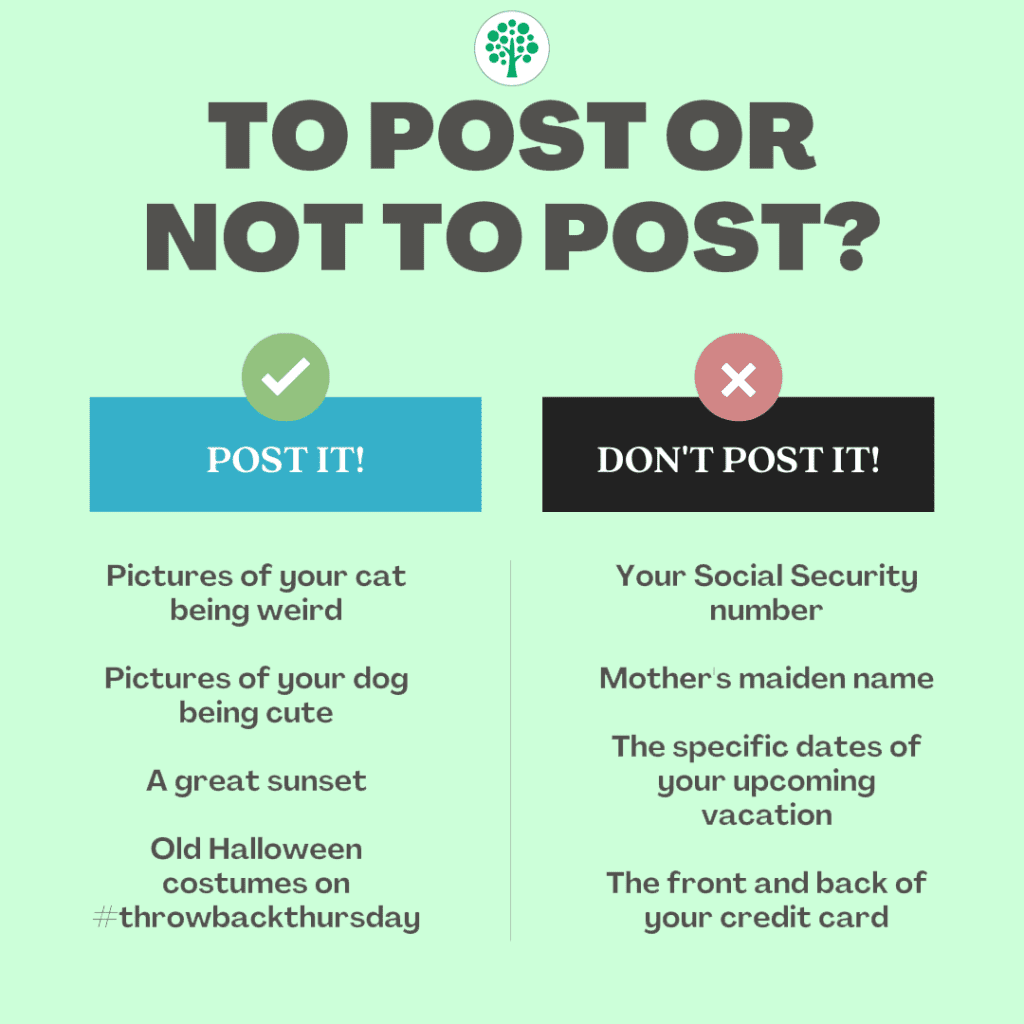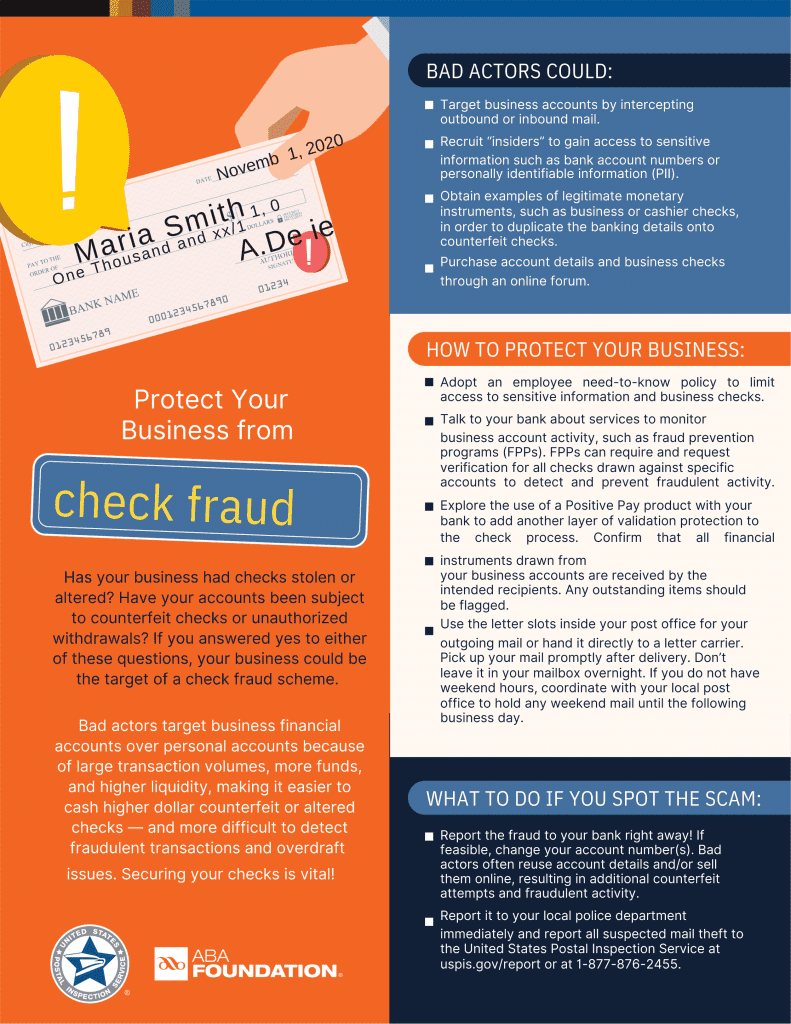
The internet is a wonderful tool for information, communication, and… fraud. You gotta take the bad with the good! And we can all certainly mitigate our risk online by following a few simple rules for staying safe on social media.
- Know what you’ve posted about yourself. A common way that hackers break into financial or other accounts is by clicking the “Forgot your password?” link on the account login page. To break into your account, they search for the answers to your security questions, such as your birthday, home town, high school class, or mother’s middle name. If the site allows, make up your own password questions, and don’t draw them from material anyone could find with a quick search.
- Think twice before sharing personal information that would make you vulnerable. Social networking means opening up and sharing information online with others, but there’s some information you should never share online. Protecting yourself from sharing Too Much Information (TMI) can save you from identity theft and even protect your physical safety. So let’s start with the obvious – never share your social security number (including even just the last 4 digits), your birth date, home address or home phone number (although sharing your business phone is OK). Of course, you should protect all of your passwords, PIN numbers, bank account, credit card information and never share them with others.
- Assume that everything you put on a social networking site is permanent. Even if you can delete your account, anyone on the Internet can easily print photos or text or save images and videos to a computer.
- Be selective about who you accept as a friend on a social network. Identity thieves might create fake profiles in order to get information from you. According to a recent survey by Harris Interactive, nearly 13 million Americans age 18+ who are on social networking sites will accept any social media connection request from a member of the opposite sex, regardless of whether or not they know that person. That lack of caution can be extremely costly. Most networking sites contain personal information. When you friend someone, you give them access to that information and that can be used by fraudsters.
If in doubt, don’t post. Oversharing can give criminals the information they need to social engineer you into falling prey to a scam. It’s better to be mysterious anyway!


